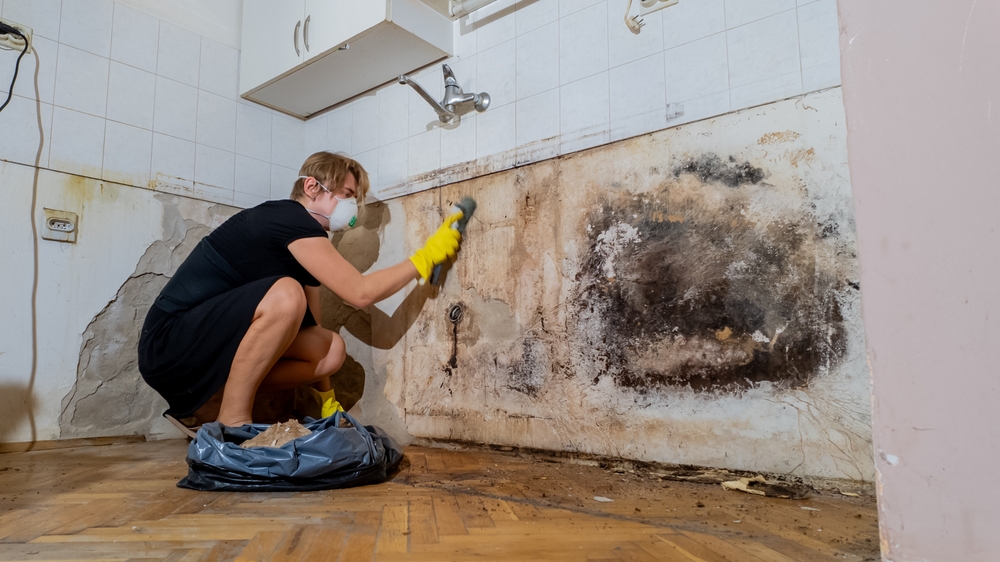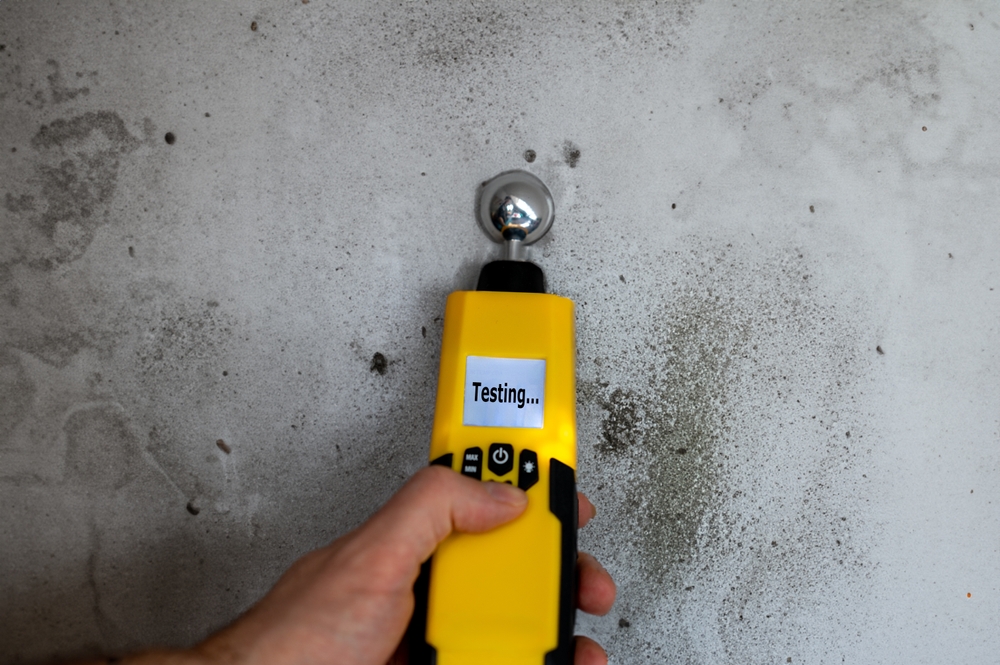Our dwellings contain more mold than we would have guessed. Even if everything seems tidy, it might lurk silently beneath sinks, under cabinets, or in obscure places. Among the several health problems mold can bring about are allergies and respiratory problems. This makes frequent mold examinations really vital. Early mold identification can preserve your health, stop it from spreading, and save you money on costly repairs down-stream. We will go over in this post the importance of regular mold inspections are so important, what causes mold, and how you might protect your house.
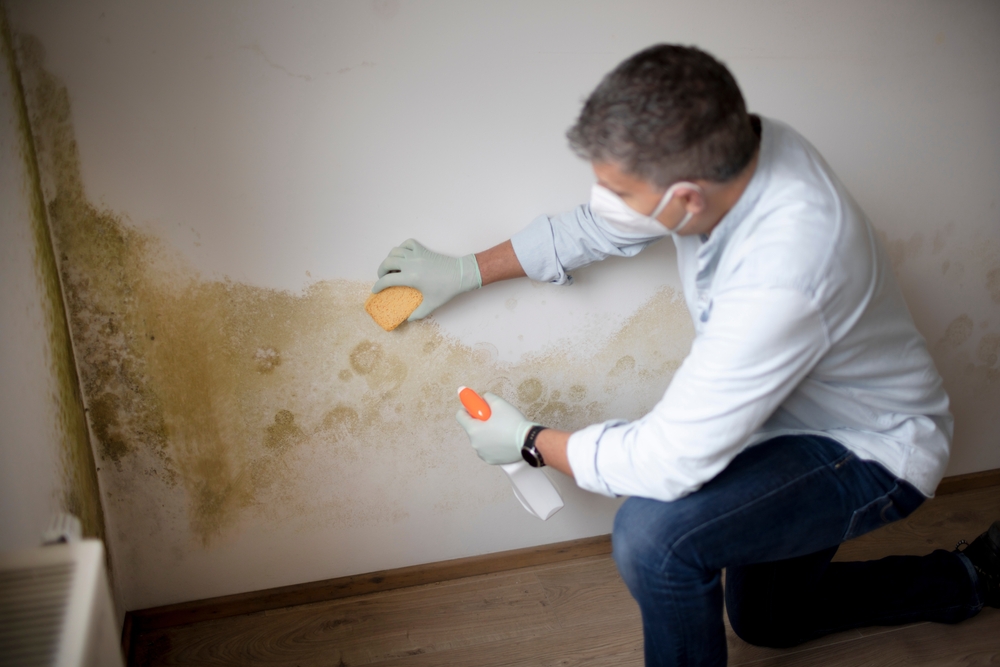
Common Causes of Mold Growth in Homes
Mold need moisture to flourish, hence there are several ways in which it could develop in a house. Stopping mold starts with knowing these reasons.
Water Intrusion
Among the primary causes of mold in homes is water penetration. Water makes the ideal habitat for mold spores to flourish once it gets inside.
- Leaky Roofs: Through these leaks, rainwater can seep into walls and damage ceilings. Mold likes this moisture most of all.
- Plumbing Issues: Cracks or bursts in pipes could cause water damage in behind walls or under sinks in otherwise unseen regions.
- Flooding: Floodwater can find your house during storms or severe rain. Widespread wetness produced by flooding is what mold can utilize for growth.
First it is difficult to see when water enters areas it shouldn’t belong in. Once the area stays wet, though, mold can begin to spread rapidly.
High Humidity
High humidity indicates a great concentration of air moisture. A humid air can settle on surfaces and maintain their dampness.
- Poor Ventilation: Inadequate ventilation in a room can cause the air within to get rather humid. This affects basements, bathrooms, and kitchens among other areas.
- Condensation: Condensation causes occasionally water droplets to develop on cold surfaces or windows. Mold might flourish from this increased moisture.
One significant contributing factor to mold issues is high humidity. Even in cases with no leaks, humid air can cause surfaces to be moist enough for mold development.
Poor Air Quality
Maintaining reasonable moisture levels depends on good air flow. In poor circulation of air, moisture accumulates.
- Inadequate Ventilation: Rooms lacking appropriate windows or vents can retain humid air. This stored moisture provides mold with somewhere to begin spreading.
- Clogged Air Filters: In homes with heating or cooling systems, clogged air filters may lower air flow. This issue can aggravate indoor air quality and raise mold development probability.
One of the key steps in avoiding mold in your house is attending to these problems.
Signs of Mold Growth in Your Home
Early detection of mold depends on one knowing its indicators. During your routine house inspections, be on lookout for these signs.
Visible Mold
Depending on the type, mold might seem somewhat differently. It could be black, green, or white; occasionally it also seems fuzzy.
- Common Locations: Typical places where mold thrives are basements, kitchens, and bathrooms. You might also find it in places suffering water damage.
- Hidden Areas: Mold can lurk under carpets, inside walls, or behind furniture. There can be mold hiding in these areas even if you can not see it.
Musty Odors
Though you cannot see it, a musty scent is a clear hint that mold exists.
- Hidden Mold: Sometimes mold develops in difficult to reach areas. The sole indication that mold is present is its scent.
- Air Quality: Having a mold inspection is a smart option if you find that the air in your house feels damp and stale.
Health Symptoms
Your health might be compromised in several ways by mold. These are significant indicators to be on lookout for.
- Allergies: Mold can aggravate allergies like sneezing, a runny nose, or itchy eyes.
- Respiratory Problems: Those with asthma or other respiratory diseases may find it more difficult to breathe.
- Other Health Issues: Extended mold exposure can cause headaches, tiredness, and even skin irritability.
Mold could be the culprit if you or a family member have these symptoms without another obvious one.
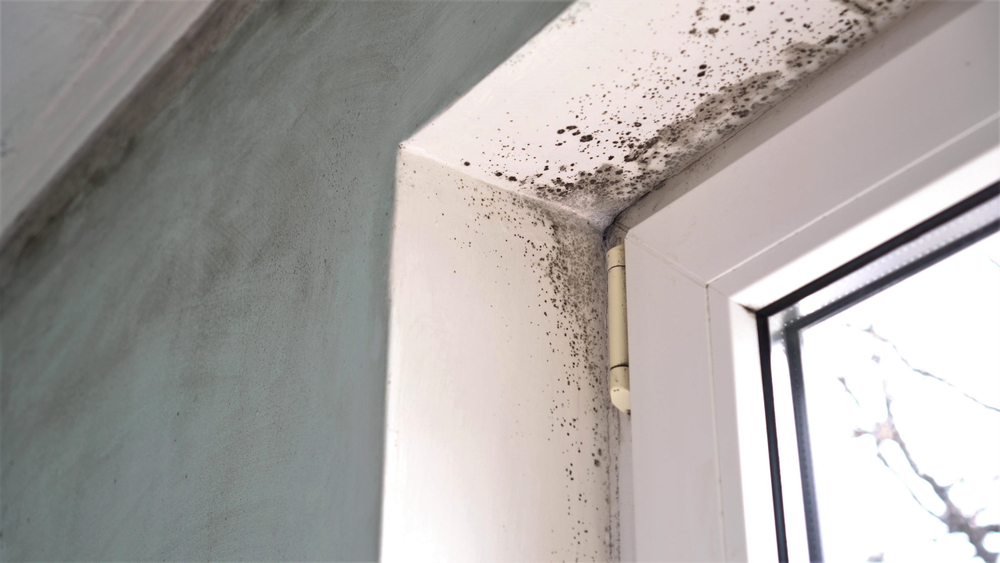
The Benefits of Regular Mold Inspections
The safety and health of your house can be much improved by regular mold examinations. The following are few of the primary advantages:
Early Detection
The greatest approach to stop mold from spreading is early identification of it.
- Preventing Spread: Early discovery of mold facilitates and less expensive removal of it. This prevents further damage of further parts of your house by the mold.
- Avoiding Major Repairs: If minor mold problems are not taken care of fast, they might become more serious. Over time, early discovery will help you save money.
Health Protection
Your health may be seriously threatened by mold. Regular inspections help to safeguard everyone living in your house.
- Allergy Prevention: Early removal of mold will help to lower your risk of allergies and other health issues.
- Safer Air: Maintaining a mold-free house will help to ensure cleaner and safer air for breathing.
Maintaining Property Value
Ignoring maintenance will cause Mold to reduce the value of your house.
- Property Damage: Mold can damage personal items, floors, and walls. Repairing this damage can prove costly.
- Selling or Renting: Potential tenants or buyers will find a mold-free house far more attractive if you decide to sell or rent your house.
Frequent inspections help to keep your property appealing generally and in good condition.
How to Schedule a Mold Inspection
Maintaining the safety of your house depends on setting up a mold check. Here’s how you do it:
Choose a Qualified Inspector
Hiring the correct inspector is absolutely vital.
- Certification: Search for an inspector trained in mold detection who has experience. A skilled inspector will understand how to test for mold and what to search for.
- Reputation: Ask friends, relatives, or local home improvement businesses for recommendations; check internet reviews. Usually, credible inspectors receive positive comments from past clients.
- Industry Associations: Industry associations can also help you find qualified mold inspectors in your area.
Prepare for the Inspection
Making your house ready for an inspection will help the process run without hicc-ups.
- Clear Access: Make sure the inspector has simple access to locations probably prone to mold. This covers basement, attic, and behind furniture.
- Gather Information: Get ready to tell the inspector whether you have observed any leaks or water damage. It might guide their focus of the inspection on where to start.
- Ask Questions: Ask the inspector about their procedure and what they search for without second thought. Knowing the process will help you to feel more sure about the inspection.
Choosing a qualified inspector and getting your house ready can help to guarantee a comprehensive mold inspection.
Mold Remediation
Sometimes mold will find your house even with frequent examinations. Professional mold cleanup is required upon this occurrence.
- Professional Process: Certified mold treatment professionals will evaluate the damage, remove the mold, and clean the impacted spaces. They guarantee safe removal of all mold by means of specific tools.
- Safety First: Not a do-it-yourself activity is mold removal. Professionals have the tools and knowledge needed to eliminate mold without spreading spores to other areas of your house.
- Cleanup and Disposal: Experts will clean and dispose of any contaminated items once the mold has been removed. This stage is absolutely crucial to stop next mold development.
Hiring a professional guarantees that your house is safe for you and your family and that the mold is totally eliminated.
Prevention Tips
Stopping mold is not as difficult as you would believe. You can lower your house’s mold risk with a few basic procedures.
- Reduce Humidity: Use dehumidifiers, particularly in moist places like bathrooms or basements. A reasonable aim is to keep the humidity below fifty percent.
- Improve Ventilation: Open windows, run fans, and think about adding air vents. Good air movement keeps moisture levels under control.
- Address Leaks Promptly: Fix windows, pipes, and leaky ceilings right away. Dealing with leaks quickly increases your chances of mold growth being lessened.
- Regular Cleaning: Frequent cleaning includes drying off typically moist regions. For instance, clean bathroom tiles and maintain dryness of your kitchen sink.
- Monitor Indoor Plants: Houseplants left overwater might produce excess moisture. Check the soil to be not very damp.
These preventative actions will help you to keep mold from invading your house.
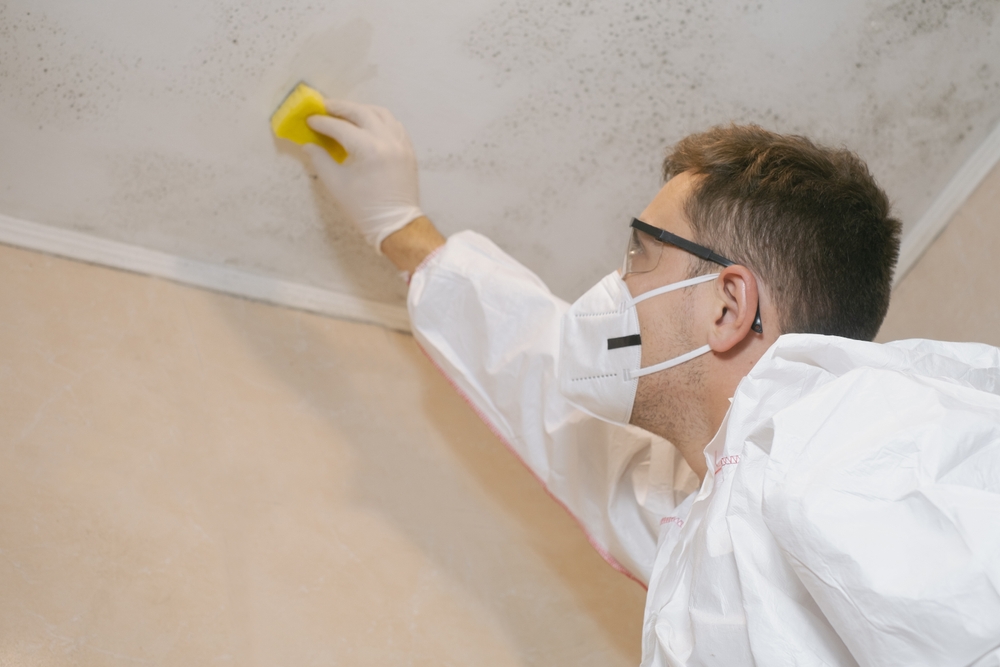
Conclusion
Not just a nice concept, but regular mold inspections are really necessary to maintain your house safe and healthy. From water leaks, high humidity, or poor air quality, mold can enter your house stealthwise. It can aggravate allergies, dyspnea, and other medical conditions. Moreover, mold may ruin your house and gradually reduce its worth.
Planned monthly mold checks help you to identify mold early on before it spreads. Early discovery protects your health, saves money, and helps to preserve the value of your house. Remember, you should act fast if you notice mold-related symptoms, musty smells, or obvious development. Maintaining a mold-free house requires the best approach to be hiring a trained mold inspector and, if necessary, a professional remedial service.
Following these guidelines will enable your family and you live in a better surroundings. Don’t wait for mold to cause major issues; today, include regular inspections into your house’s maintenance.
Philadelphia Restoration Services
https://www.google.com/maps?cid=3399342399556699153
+1 267 668 0013
https://philadelphiarestorationservices.com/

